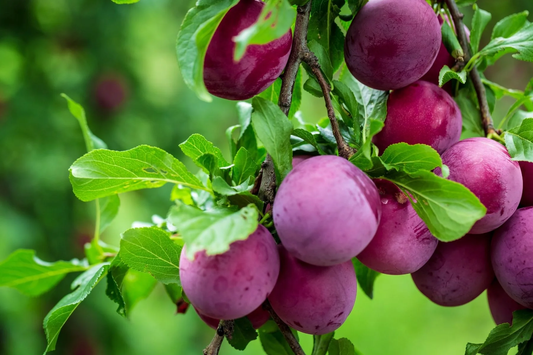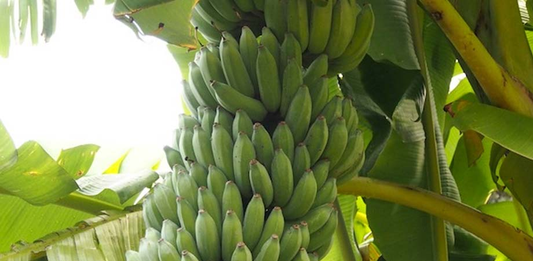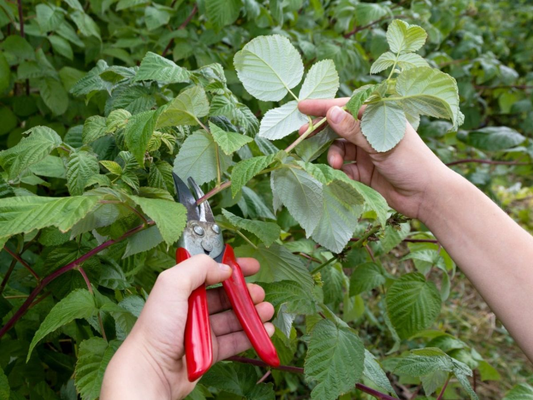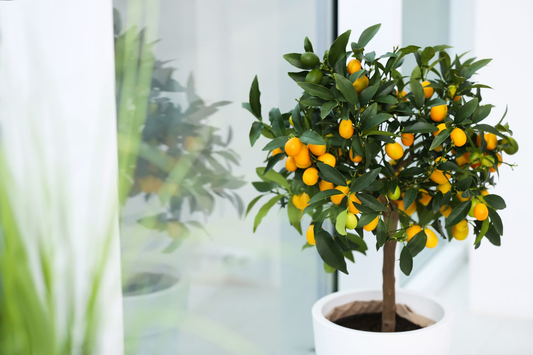Buy Vegetable Seeds for Balcony Gardening: The Best Seeds for Small Spaces and Big Flavors!
Share
Table of Contents
1. Introduction: The Joy of Balcony Gardening
Balcony gardening is a growing trend that allows people with limited outdoor space to enjoy the beauty and benefits of gardening. Whether you're living in an apartment or have a small balcony, it's possible to transform even the tiniest spaces into lush, productive gardens. Balcony gardening is a creative solution for city dwellers who want to grow their own fresh produce, herbs, or flowers without needing a traditional backyard.
One of the key appeals of balcony gardening is its space efficiency. Urban areas often lack large gardens, but with the right approach, you can grow a variety of plants in even the smallest of spaces. Here's why balcony gardening works:
- Utilizes Vertical Space: By using containers, hanging planters, or vertical gardening techniques, you can grow more in a smaller area.
- Flexible Layout: Balcony gardens can be designed to fit your space, whether you have a small ledge, railing, or a large terrace.
- Personalized Space: A balcony garden is your own green retreat, giving you a peaceful environment to relax and escape the urban hustle.
As for growing vegetables on your balcony, the benefits are even more rewarding:
- Fresh, Homegrown Produce: Nothing beats the flavor and satisfaction of eating vegetables you've grown yourself.
- Health Benefits: Gardening provides physical exercise and mental health benefits, reducing stress and increasing well-being.
- Sustainability: Growing your own vegetables reduces your carbon footprint and reliance on store-bought produce that has traveled long distances.
- Cost-Effective: Growing your own food can help cut down on grocery bills, especially for vegetables that you use frequently.
In the following sections, we’ll explore how you can create your own balcony garden, from choosing the best vegetable seeds to harvesting your homegrown produce. So, let’s dive into the exciting world of balcony gardening and discover how easy it is to grow vegetables even in the most limited spaces!

2. Why Balcony Gardening is Perfect for City Dwellers
Urban living comes with its own set of challenges, especially when it comes to gardening. Many city dwellers face limited space, making it difficult to cultivate traditional gardens. The scarcity of large yards, busy city environments, and increased pollution levels can also hinder the desire to grow fresh food at home. However, despite these obstacles, balcony gardening offers a perfect solution.
In cities, the challenges of gardening include:
- Limited Yard Space: In many urban areas, homes or apartments lack large outdoor spaces for traditional gardening. Balconies often become the only available spot for growing plants.
- Pollution: Air pollution and environmental stressors can impact plant growth. However, balcony gardens can help filter the air by absorbing carbon dioxide and releasing oxygen.
- Busy Lifestyles: With the hustle and bustle of city life, people often don't have time to tend to large gardens. Balcony gardening, however, requires minimal space and is easy to maintain.
Despite these challenges, there are numerous benefits to growing your own vegetables in the city:
- Fresh Produce: Having a balcony garden allows you to enjoy fresh, homegrown vegetables right at your doorstep, which is both satisfying and healthy.
- Stress Relief: Gardening has been proven to reduce stress and promote mental well-being, offering city dwellers a peaceful retreat from the hustle and bustle.
- Sustainable Living: By growing your own food, you reduce your reliance on store-bought produce, lower your carbon footprint, and help support a more sustainable lifestyle.
Balcony gardening is a simple and effective way to overcome the challenges of urban life. It maximizes small spaces and provides a healthy, green environment that can improve both your physical and mental well-being.
To make the most of your balcony garden, it’s crucial to choose the right vegetable seeds. Opt for compact, container-friendly varieties that thrive in small spaces and are well-suited to the unique conditions of your balcony. By selecting the best seeds, you ensure that your gardening experience will be both enjoyable and fruitful.
3. Choosing the Right Containers for Your Balcony Garden
When it comes to balcony gardening, selecting the right containers for your plants is crucial. The choice of container impacts the health of your plants and ensures that they thrive in their small space. Whether you're growing vegetables, herbs, or flowers, the right container provides the necessary conditions for root growth, water drainage, and overall plant health.
Here are key factors to consider when choosing containers for your balcony garden:
- Size: Ensure your containers are large enough to accommodate the plants’ root systems. A pot that is too small can restrict growth, while a pot that's too large can lead to overwatering issues.
- Material: Containers come in various materials such as plastic, ceramic, wood, and metal. Consider the weight, durability, and insulation properties of each material. Lightweight materials like plastic are easy to move around, while ceramic and clay pots offer better insulation but are heavier.
- Drainage: Proper drainage is essential to prevent waterlogging, which can cause root rot. Make sure your containers have drainage holes or are fitted with a tray to catch excess water.
There are many types of containers that work well for balcony gardening. Here are some of the best options:
- Pots: Standard pots are perfect for growing a variety of plants, from herbs to vegetables. Choose deep pots for root vegetables like carrots and tomatoes.
- Hanging Baskets: Ideal for growing trailing plants like strawberries, herbs, or small flowers. They also help save floor space on small balconies.
- Window Boxes: These are great for window sills or railings, allowing you to grow compact plants such as lettuce, herbs, or flowers. They are perfect for limited spaces.
- Raised Beds: If your balcony has enough space, a small raised bed can offer more depth for plants to grow, improving soil quality and drainage.
To maximize your balcony gardening space, consider these additional tips:
- Vertical Gardening: Use trellises, wall-mounted planters, or hanging shelves to grow climbing plants like beans, tomatoes, or cucumbers vertically, saving valuable floor space.
- Stacking Containers: Stack pots or containers on top of each other using tiered plant stands or DIY shelving units. This creates a compact garden while giving each plant enough room to grow.

4. What Makes a Seed Ideal for Balcony Gardening?
Choosing the right vegetable seeds is crucial to the success of your balcony garden. When gardening in small spaces, it’s essential to consider factors such as growth habits, space requirements, and sunlight needs to ensure that your plants thrive. Selecting the right seeds can help you maximize your available space and make the most of your gardening efforts.
Here are the key factors to consider when selecting vegetable seeds for small spaces:
- Growth Habits: Choose seeds for plants that have compact growth habits or can be easily trained to grow vertically. Plants that spread out widely may overwhelm small spaces and limit what you can grow.
- Space Requirements: Some vegetables need more space for their root systems or foliage, while others are more space-efficient. Make sure the plants you choose can comfortably grow in containers or on your balcony.
- Sunlight Needs: Be aware of how much sunlight your balcony receives throughout the day. Some vegetables require full sun, while others can thrive in partial shade. Pick seeds that match your balcony’s light conditions.
When it comes to choosing seed varieties for small spaces, here are some of the best options:
- Compact Varieties: Compact vegetable varieties are bred to grow in smaller spaces. These include mini carrots, cherry tomatoes, and compact peppers, which fit perfectly in containers and smaller garden areas.
- Bush Varieties: Bush varieties of vegetables like beans and squash are ideal for small spaces because they grow in a more compact, upright form rather than sprawling vines.
- Dwarf Varieties: Dwarf or miniature vegetables like dwarf cucumbers or tiny lettuce varieties are perfect for balcony gardening. These plants stay small but still produce abundant harvests.
Container-friendly vegetable seeds are different from traditional seeds because they are specifically bred to thrive in smaller spaces. These seeds tend to be more compact and may have a reduced root system, allowing them to grow efficiently in containers with limited soil. Unlike traditional varieties, container-friendly seeds are ideal for small, confined spaces like balconies, as they require less maintenance and are better adapted to the conditions of container gardening.
5. Best Vegetable Seeds for Balcony Gardening
When it comes to balcony gardening, selecting the right vegetable seeds is key to maximizing your limited space and ensuring a successful harvest. Below are some of the best vegetable seeds to grow on your balcony, each chosen for their space-saving qualities and ability to thrive in containers.
5.1 Leafy Greens
Leafy greens like lettuce, spinach, kale, and arugula are perfect for balcony gardening due to their quick growth and compact nature. These plants can be grown in shallow containers, making them ideal for small spaces. Leafy greens are also great for succession planting—harvest the mature leaves, and the plants will continue to grow, providing a steady supply of fresh greens. They thrive in cooler temperatures and don’t require a lot of sunlight, which makes them ideal for balconies that may not get full sun all day.
5.2 Herbs
Herbs are a must-have for balcony gardens, as they grow well in small containers and provide high yields in limited space. Popular choices like basil, parsley, thyme, and cilantro can be grown in pots, window boxes, or hanging baskets. These herbs are easy to maintain and are often more flavorful when grown fresh at home. Most herbs require full sun and only need occasional watering, making them perfect for busy city dwellers looking for fresh, flavorful additions to their meals. Growing herbs on your balcony also saves you money on store-bought versions.
5.3 Tomatoes
Tomatoes, especially dwarf and cherry varieties, are excellent options for balcony gardening. These compact plants are designed to grow in small spaces, often in containers or hanging baskets. Dwarf varieties like "Tiny Tim" and "Balcony" tomatoes produce small, sweet fruits that are perfect for snacking or adding to salads. Cherry tomatoes, such as "Sweet 100" and "Tumbling Tom," are also great for small spaces because they are bushy and grow well in containers. With proper care, these tomato plants can provide you with a steady supply of delicious fruit throughout the growing season.
5.4 Peppers
Peppers are another great choice for balcony gardening, with compact plants like bell peppers, chili peppers, and hot peppers thriving in containers. Varieties such as "Mini Bell" and "Jalapeño" are perfect for small spaces because of their manageable size and high yield. These pepper plants grow well in sunny spots and require moderate watering. Growing peppers in containers ensures that they stay contained and are easy to manage. Plus, with the right care, you can enjoy a variety of fresh peppers for cooking, adding spice and flavor to your meals straight from your balcony garden.
5.5 Radishes & Carrots
Radishes and carrots are excellent root vegetables for balcony gardens, thriving in containers with deep enough soil. Radishes, which grow quickly, can be harvested in as little as four weeks, making them a great option for those with limited time and space. Carrots, especially shorter varieties like "Thumbelina" and "Paris Market," are well-suited for container gardening because they don't require a large root space. Both radishes and carrots are easy to grow and require minimal care, making them perfect for beginner gardeners looking to grow healthy, fresh vegetables in small spaces.

6. Planting and Caring for Your Balcony Vegetables
Once you’ve selected the right vegetable seeds for your balcony garden, it’s time to get planting! Proper planting techniques, regular care, and maintenance are crucial for ensuring your vegetables grow healthy and strong in their containers. In this section, we’ll cover the basics of planting, watering, feeding, and maintaining your balcony vegetables.
6.1 Planting Tips
Planting vegetable seeds in containers requires careful consideration of spacing, depth, and soil quality. Here are some key tips to help you plant your seeds successfully:
- Choose the Right Container: Select a container that is large enough to accommodate the root system of the vegetable you are planting. A good rule of thumb is to use containers that are at least 6-8 inches deep for most vegetables.
- Soil Preparation: Use high-quality, well-draining potting mix, as it provides essential nutrients and ensures proper drainage for the roots. Avoid using garden soil, as it can become compacted in containers.
- Spacing: Proper spacing is important to ensure that your plants have enough room to grow. Follow the instructions on the seed packet for recommended spacing between seeds. For most small vegetables, spacing about 4-6 inches apart works well in containers.
- Planting Depth: Plant seeds at the recommended depth indicated on the seed packet. Generally, seeds should be planted about 2-3 times as deep as the seed’s diameter for optimal germination.
- Watering Right After Planting: After planting, water your seeds thoroughly to settle the soil and provide moisture for germination. Ensure the soil remains consistently moist until the seeds sprout.
6.2 Watering and Feeding
Proper watering and feeding are essential for healthy plant growth. Here are some important tips:
- Consistent Watering: Keep the soil consistently moist, but not waterlogged. Vegetables in containers tend to dry out faster, so you may need to water more frequently than plants in the ground. Check the soil daily and water when the top 1-2 inches feel dry.
- Fertilization: Use a balanced, water-soluble fertilizer to feed your vegetables. Organic fertilizers, such as compost or fish emulsion, work well for container plants. Feed your plants every 2-4 weeks, depending on their growth stage and the type of fertilizer used.
6.3 Pruning and Maintenance
Maintaining your balcony vegetables is key to ensuring a bountiful harvest. Here are a few tips for pruning and supporting your plants:
- Pruning: Regularly prune dead or yellowing leaves to encourage healthy new growth and improve air circulation around your plants. Pinch off spent flowers to redirect energy to fruit production.
- Supporting Plants: Use stakes, trellises, or cages to support climbing plants like tomatoes and peppers. This helps prevent damage and keeps your plants upright, maximizing space.
- Managing Pests: Keep an eye out for common pests such as aphids, slugs, and spider mites. Use natural pest control methods like neem oil, insecticidal soap, or introducing beneficial insects like ladybugs to your garden.
7. Creating the Ideal Microclimate on Your Balcony
To ensure that your balcony vegetables thrive, it’s important to create a microclimate that meets their specific needs for sunlight, temperature, and protection from extreme weather. By optimizing these conditions, you can significantly improve your chances of growing healthy, productive plants.
7.1 Sunlight and Temperature
Vegetables need the right amount of sunlight and temperature to grow successfully, and creating the ideal microclimate on your balcony is crucial for this. Here's how to ensure your plants get what they need:
- Sunlight Requirements: Most vegetables, like tomatoes, peppers, and leafy greens, require full sun (6+ hours per day) to grow well. Ensure your balcony gets enough sunlight, either by choosing the right location or rotating pots throughout the day to maximize exposure.
- Partial Shade Vegetables: If your balcony is shaded for part of the day, don't worry! Many vegetables, such as spinach, lettuce, and herbs, can thrive in partial shade. These plants typically require 3-4 hours of direct sunlight.
- Optimal Temperature Range: Vegetables generally prefer temperatures between 55°F (13°C) and 75°F (24°C). On very hot days, consider relocating plants to a shaded area or using shade cloth to prevent heat stress. Likewise, be mindful of cold temperatures in winter—some plants may need extra protection during cooler months.
7.2 Wind Protection and Heat Management
Balconies can be exposed to harsh winds and intense heat, which can stress or even damage your plants. Here’s how to mitigate these factors and ensure your vegetables stay healthy:
- Wind Protection: Strong winds can dry out plants and damage delicate leaves or stems. Use windbreaks such as trellises, fencing, or plant containers to shield your plants from gusts. You can also group plants together to create a natural wind barrier.
- Using Shade Cloth: To protect your plants from excessive sun, consider using shade cloth, which reduces heat and sun intensity. You can drape it over a frame or secure it to balcony railings. A 30-50% shade cloth is ideal for most vegetables during the hottest parts of the day.
- Managing Heat: On particularly hot days, move plants to a shaded spot or use reflective materials like aluminum foil or Mylar to reflect heat away. Water your plants in the early morning or late evening when temperatures are cooler to prevent dehydration.

8. Maximizing Space: Vertical Gardening and Companion Planting
Balcony gardening often requires creativity to maximize limited space. Two effective strategies for making the most of your small gardening area are vertical gardening and companion planting. These methods not only help you save space but also improve plant health and yield.
8.1 Vertical Gardening
Vertical gardening allows you to grow more in less space by utilizing the vertical area of your balcony. Here are some ways to implement this method:
- Trellises: Install a trellis to support climbing plants like tomatoes, cucumbers, and beans. These plants can grow upwards, saving valuable floor space while still producing a high yield.
- Hanging Baskets: Hanging baskets are ideal for growing herbs, strawberries, and compact flowers. These baskets can be hung from the ceiling or railing, utilizing vertical space efficiently.
- Wall-Mounted Planters: Wall-mounted planters or pocket planters are great for small leafy greens or herbs. These can be placed on walls or fences to create a green wall effect while maximizing growing space.
- Use of Vertical Structures: Consider using ladders, vertical garden towers, or even repurposing old furniture like bookshelves to stack plants and grow vertically.
8.2 Companion Planting
Companion planting is the practice of growing different plants together to benefit each other. By pairing plants that have complementary needs and characteristics, you can improve plant health, boost growth, and maximize space. Here are a few examples:
- Basil with Tomatoes: Basil helps deter pests like aphids and improves the flavor of tomatoes. Growing them together allows both plants to thrive without taking up much space.
- Carrots with Onions: Carrots benefit from the pest-repelling properties of onions, and onions can help break up the soil for carrots to grow more easily. This combination is perfect for container gardening.
- Peppers with Marigolds: Marigolds can help repel aphids and other pests from pepper plants, while also adding vibrant color to your balcony garden.
- Spinach with Strawberries: Spinach provides ground cover to protect strawberries from direct sun and helps keep the soil moist, while strawberries benefit from the shade provided by spinach leaves.
9. Harvesting and Enjoying Your Balcony Garden Produce
One of the most rewarding aspects of balcony gardening is harvesting the fruits (and vegetables) of your labor. The following tips will help you get the most out of your balcony-grown produce, from the right time to harvest to how to cook with your fresh ingredients.
9.1 Harvesting Tips
Knowing when and how to harvest your vegetables is crucial for ensuring optimal flavor and yield. Here are some tips for harvesting your produce at its peak:
- Harvest Early in the Morning: Early morning is the best time to harvest, as the plants are fully hydrated and the flavors are most intense.
- Pick Vegetables When They’re Ripe: Each vegetable has its ideal harvest time. For example, leafy greens like spinach and lettuce should be picked while young for a tender texture, while tomatoes and peppers should be fully colored before picking.
- Use Clean, Sharp Tools: Always use clean and sharp scissors or shears to cut your vegetables. This reduces damage to the plant and helps prevent the spread of disease.
- Harvest Regularly: Frequent harvesting encourages more growth and higher yields. Regularly pick ripe vegetables to promote the production of new fruits and leaves.
9.2 Cooking with Homegrown Veggies
Cooking with vegetables fresh from your balcony garden is a delightful experience that enhances your meals with vibrant flavors. Here are a few easy recipes and ideas to get you started:
- Fresh Salad with Lettuce and Herbs: Use your freshly harvested lettuce, arugula, and basil to make a simple salad. Add a drizzle of olive oil and a squeeze of lemon for a refreshing dish.
- Tomato Basil Pasta: Toss your ripe tomatoes and fresh basil into a quick pasta sauce. The burst of flavor from homegrown tomatoes will elevate your dish.
- Stuffed Peppers: Fill bell peppers with a mixture of rice, beans, and herbs like cilantro and parsley from your balcony garden for a healthy, homemade meal.
- Herb-Infused Omelet: Use fresh herbs such as thyme, rosemary, or chives in a simple omelet for a delicious and nutritious breakfast.
10. Where to Buy Vegetable Seeds for Balcony Gardening
Finding the right vegetable seeds for your balcony garden is essential for a successful harvest. Whether you prefer to shop online or visit a local nursery, there are many options available to get high-quality seeds for your small space garden.
10.1 Online Stores
Buying vegetable seeds online offers convenience and access to a wide range of varieties, including those specifically suited for small spaces and balcony gardening. Here are some reliable online stores where you can find the best seeds:
- Xroci.com: At Xroci.com, we offer a curated selection of vegetable seeds ideal for balcony gardens, including compact and container-friendly varieties. Our seeds are high-quality and sourced to ensure successful growth in small spaces.
- Other Online Retailers: If you're looking for additional options, websites like Burpee, Johnny's Selected Seeds, and Gardener's Supply Company also offer an array of vegetable seeds perfect for container gardening and small spaces.
- Specialty Stores: Some stores specialize in organic, heirloom, and non-GMO vegetable seeds, which are great choices for gardeners seeking unique or sustainable options.
10.2 Local Garden Centers and Nurseries
Supporting local garden centers and nurseries is another excellent way to source your vegetable seeds. These businesses often provide personalized advice and a selection of regionally adapted seeds that perform well in your local climate. Here are some reasons why buying locally can benefit your balcony garden:
- Expert Advice: Local garden centers are staffed with knowledgeable experts who can offer valuable tips on planting, growing, and caring for vegetables suited to your area.
- Fresh Seeds: Local nurseries typically carry seeds that are fresher and more likely to germinate successfully, as they are sold in smaller batches and are kept in optimal conditions.
- Support for Local Businesses: Purchasing from local nurseries helps sustain small businesses in your community, which often carry a selection of rare or region-specific plants and seeds.
- Instant Gratification: Unlike online shopping, you can immediately inspect the seeds and purchase them on-site, allowing you to start planting right away.

11. Sustainability Benefits of Balcony Gardening
Balcony gardening not only offers personal rewards but also contributes to a more sustainable way of living. By utilizing small spaces to grow your own food, you can reduce your environmental impact and promote sustainability in various ways.
11.1 Environmental Impact
One of the key benefits of balcony gardening is its positive effect on the environment. Growing your own vegetables helps lower your carbon footprint in the following ways:
- Reduced Transportation Emissions: When you grow your own food, you reduce the need to purchase store-bought produce that has been transported long distances, cutting down on fuel consumption and emissions.
- Minimized Packaging Waste: By harvesting your vegetables directly from your balcony, you avoid plastic packaging often used for store-bought produce.
- Decreased Resource Consumption: Growing your own food can help conserve water and resources, as you can tailor your gardening practices to use less water and organic fertilizers.
11.2 Sustainable Living
Balcony gardening supports sustainable living by promoting responsible food production and consumption. Here's how:
- Reduction in Food Waste: Growing only what you need helps avoid food waste. You can harvest just the right amount of vegetables for your meals and reduce spoilage.
- Composting Opportunities: Balcony gardens offer a perfect place to compost kitchen scraps, reducing landfill waste while providing nutrients for your plants.
- Local and Seasonal Produce: By growing your own, you can ensure you're eating local, seasonal produce that is fresher and more sustainable than imported food.
12. FAQ – Frequently Asked Questions
Here are some common questions about balcony gardening, along with answers to help you get started and ensure your success:
12.1 Can I grow vegetables on a balcony that gets limited sunlight?
Yes, you can grow vegetables in areas with limited sunlight, but you will need to choose shade-tolerant varieties. Leafy greens like lettuce, spinach, and kale, as well as herbs like parsley and mint, thrive in partial shade. If possible, try to move your plants to sunnier spots during the day to maximize their exposure.
12.2 How do I care for my vegetable plants during the winter months?
During winter, you can protect your balcony garden by using row covers, cold frames, or bringing containers inside. Plants like kale and spinach can survive in colder temperatures, but most plants will need some protection from frost. Make sure to adjust watering needs since plants tend to need less water during the winter.
12.3 What’s the easiest vegetable to grow on a balcony?
Some of the easiest vegetables to grow on a balcony include radishes, lettuce, spinach, and herbs like basil and parsley. These plants are low-maintenance and don’t require a lot of space, making them ideal for beginners.
12.4 Can I grow vegetables in a balcony garden without prior experience?
Yes, balcony gardening is a great way to start gardening without prior experience. Start with easy-to-grow vegetables and herbs, and gradually learn as you go. Follow basic guidelines for watering, sunlight, and container care, and you’ll be on your way to a successful garden!
12.5 How do I prevent pests in my balcony garden?
To prevent pests, regularly inspect your plants and remove any affected leaves. You can also use natural remedies like neem oil or insecticidal soap. Companion planting, such as planting basil with tomatoes, can help deter pests, and introducing beneficial insects like ladybugs can keep harmful insects in check.
Additional Resources
Ready to Grow Your Own Herbs? Here’s Why You Need to Buy Herb Garden K – XRoci
Indoor Tomato Growing Made Easy: How to Grow Tomatoes from Seed Indoor – XRoci
How to Grow Carrots from Seeds for Sweet, Crisp Carrots All Season Lon – XRoci
Stylish Solutions: A Guide to Buy Indoor Plant Pots Online for Every T – XRoci




